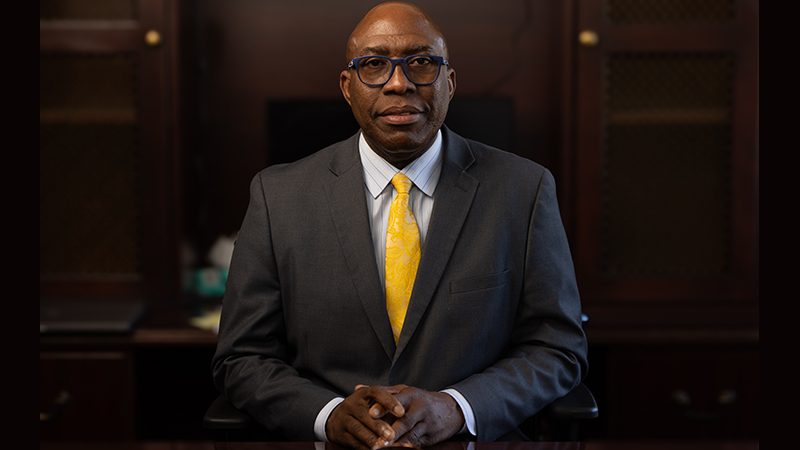True education means more than the pursual of a certain course of study. It means more than a preparation for the life that now is. It has to do with the whole being, and with the whole period of existence possible to man. It is the harmonious development of the physical, the mental, and the spiritual powers. It prepares the student for the joy of service in this world and for the higher joy of wider service in the world to come.…
As the moon and the stars of our solar system shine by the reflected light of the sun, so, as far as their teaching is true, do the world's great thinkers reflect the rays of the Sun of Righteousness. Every gleam of thought, every flash of the intellect, is from the Light of the world (p. 13).
In a knowledge of God all true knowledge and real development have their source. Wherever we turn, in the physical, the mental, or the spiritual realm; in whatever we behold, apart from the blight of sin, this knowledge is revealed. Whatever line of investigation we pursue, with a sincere purpose to arrive at truth, we are brought in touch with the unseen, mighty Intelligence that is working in and through all. The mind of man is brought into communion with the mind of God, the finite with the Infinite. The effect of such communion on body and mind and soul is beyond estimate (p. 14).
Love, the basis of creation and of redemption, is the basis of true education. This is made plain in the law that God has given as the guide of life. The first and great commandment is, “Thou shalt love the Lord thy God with all thy heart, and with all thy soul, and with all thy strength, and with all thy mind.” Luke 10:27. To love Him, the infinite, the omniscient One, with the whole strength, and mind, and heart, means the highest development of every power. It means that in the whole being—the body, the mind, as well as the soul—the image of God is to be restored.…
The law of love calls for the devotion of body, mind, and soul to the service of God and our fellow men. And this service, while making us a blessing to others, brings the greatest blessing to ourselves. Unselfishness underlies all true development. Through unselfish service we receive the highest culture of every faculty. More and more fully do we become partakers of the divine nature. We are fitted for heaven, for we receive heaven into our hearts (p. 16).
Every human being, created in the image of God, is endowed with a power akin to that of the Creator—individuality, power to think and to do. The men in whom this power is developed are the men who bear responsibilities, who are leaders in enterprise, and who influence character. It is the work of true education to develop this power, to train the youth to be thinkers, and not mere reflectors of other men's thought. Instead of confining their study to that which men have said or written, let students be directed to the sources of truth, to the vast fields opened for research in nature and revelation. Let them contemplate the great facts of duty and destiny, and the mind will expand and strengthen. Instead of educated weaklings, institutions of learning may send forth men strong to think and to act, men who are masters and not slaves of circumstances, men who possess breadth of mind, clearness of thought, and the courage of their convictions (p. 17).
Such an education provides more than mental discipline; it provides more than physical training. It strengthens the character, so that truth and uprightness are not sacrificed to selfish desire or worldly ambition. It fortifies the mind against evil. Instead of some master passion becoming a power to destroy, every motive and desire are brought into conformity to the great principles of right. As the perfection of His character is dwelt upon, the mind is renewed, and the soul is re-created in the image of God.…
Higher than the highest human thought can reach is God's ideal for His children. Godliness—godlikeness—is the goal to be reached. Before the student there is opened a path of continual progress. He has an object to achieve, a standard to attain, that includes everything good, and pure, and noble. He will advance as fast and as far as possible in every branch of true knowledge. But his efforts will be directed to objects as much higher than mere selfish and temporal interests as the heavens are higher than the earth (p. 18).
He who co-operates with the divine purpose in imparting to the youth a knowledge of God, and molding the character into harmony with His, does a high and noble work. As he awakens a desire to reach God's ideal, he presents an education that is as high as heaven and as broad as the universe; an education that cannot be completed in this life, but that will be continued in the life to come; an education that secures to the successful student his passport from the preparatory school of earth to the higher grade, the school above (p. 19).
_____________________________
These excerpts are from Chapter One of the book Education by Ellen G. White (Mountain View, CA: Pacific Press Pub. Assn., 1903).






La fuente de la verdadera educación y su propósito
Por Ellen G. White
La verdadera educación significa más que la prosecución de un determinado curso de estudio. Significa más que una preparación para la vida actual. Abarca todo el ser, y todo el período de la existencia accesible al hombre. Es el desarrollo armonioso de las facultades físicas, mentales y espirituales. Prepara al estudiante para el gozo de servir en este mundo, y para un gozo superior proporcionado por un servicio más amplio en el mundo venidero.Así como la luna y los planetas de nuestro sistema solar brillan por la luz que reflejan del sol, los grandes pensadores del mundo, en lo que tenga de cierto su enseñanza, reflejan los rayos del Sol de Justicia. Todo rayo del pensamiento, todo destello del intelecto, procede de la Luz del mundo.
Todo verdadero conocimiento y desarrollo tienen su origen en el conocimiento de Dios. Dondequiera que nos dirijamos: al dominio físico, mental y espiritual; cualquier objeto que contemplemos, fuera de la marchitez del pecado, en todo vemos revelado este conocimiento. Cualquier ramo de investigación que emprendamos, con el sincero propósito de llegar a la verdad, nos pone en contacto con la Inteligencia poderosa e invisible que trabaja en todas las cosas y por medio de ellas. La mente del hombre se pone en comunión con la mente de Dios; lo finito, con lo infinito. El efecto que tiene esta comunión sobre el cuerpo, la mente y el alma sobrepuja toda estimación.
El amor, base de la creación y de la redención, es el fundamento de la verdadera educación. Esto se ve claramente en la ley que Dios ha dado como guía de la vida. El primero y gran mandamiento es: «Amarás al Señor tu Dios con todo tu corazón, y con toda tu alma, y con todas tus fuerzas, y con toda tu mente» (Lucas 10:27). Amar al Ser infinito, omnisciente, con todas las fuerzas, la mente y el corazón, significa el desarrollo más elevado de todas las facultades. Significa que en todo el ser —cuerpo, mente y alma— ha de ser restaurada la imagen de Dios.
La ley de amor requiere la dedicación del cuerpo, la mente y el alma al servicio de Dios y de nuestros semejantes. Y este servicio, a la vez que nos constituye en bendición para los demás, nos proporciona la más grande bendición. La abnegación es la base de todo verdadero desarrollo. Por medio del servicio abnegado, adquieren su máximo desarrollo todas nuestras facultades. Llegamos a participar cada vez más plenamente de la naturaleza divina. Somos preparados para el cielo, porque lo recibimos en nuestro corazón.
Todo ser humano, creado a la imagen de Dios, está dotado de una facultad semejante a la del Creador: la individualidad, la facultad de pensar y hacer. Los hombres en quienes se desarrolla esta facultad son los que llevan responsabilidades, los que dirigen empresas, los que influyen sobre el carácter. La obra de la verdadera educación consiste en desarrollar esta facultad, en educar a los jóvenes para que sean pensadores, y no meros reflectores de los pensamientos de otros hombres. En vez de restringir su estudio a lo que los hombres han dicho o escrito, los estudiantes tienen que ser dirigidos a las fuentes de la verdad, a los vastos campos abiertos a la investigación en la naturaleza y en la revelación. Contemplen las grandes realidades del deber y del destino y la mente se expandirá y se robustecerá. En vez de jóvenes educados, pero débiles, las instituciones del saber deben producir jóvenes fuertes para pensar y obrar, jóvenes que sean amos y no esclavos de las circunstancias, jóvenes que posean amplitud de mente, claridad de pensamiento y valor para defender sus convicciones.
Semejante educación provee algo más que una disciplina mental; provee algo más que una preparación física. Fortalece el carácter, de modo que no se sacrifiquen la verdad y la justicia al deseo egoísta o a la ambición mundana. Fortalece la mente para su lucha contra el mal. En vez de que una pasión dominante llegue a ser un poder destructor, se amoldan cada motivo y deseo a los grandes principios de la justicia. Al espaciarse en la perfección del carácter de Dios, la mente se renueva y el alma vuelve a crearse a su imagen.
El ideal que Dios tiene para sus hijos está por encima del alcance del más elevado pensamiento humano. La meta a alcanzar es la piedad, la semejanza a Dios. Ante el estudiante se abre un camino de progreso continuo. Tiene que alcanzar un objetivo, lograr una norma que incluye todo lo bueno, lo puro y lo noble. Progresará tan rápidamente e irá tan lejos como le sea posible en todos los ramos del verdadero conocimiento. Pero sus esfuerzos se dirigirán a fines mucho más elevados que el mero egoísmo y los intereses temporales, cuanto son más altos los cielos que la tierra.
El que coopera con el propósito divino para impartir a los jóvenes un conocimiento de Dios, y modelar el carácter en armonía con el suyo, participa en una obra noble y elevada. Al despertar el deseo de alcanzar el ideal de Dios, presenta una educación tan elevada como el cielo, y tan amplia como el universo; una educación que no se puede completar en esta vida, sino que continuará en la venidera; una educación que asegura al estudiante de éxito su pasaporte de la escuela preparatoria de la tierra a la superior, la celestial.
_____________________________
Tomado del primer capítulo de La Education por Ellen G. White.






